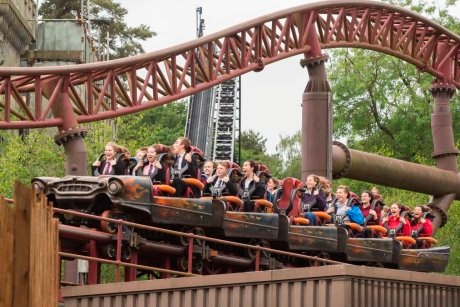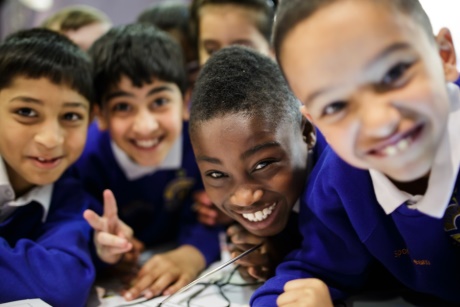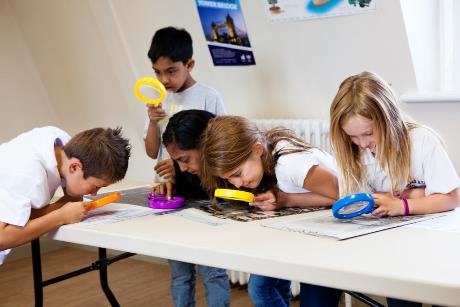Cross curricular teaching isn’t always easy. It takes planning, collaboration, and careful execution. However, when it goes well, it can lead to great results.

One of the best places to bring cross curricular learning to life is on a school trip. Destinations and attractions often work carefully with education experts to tailor workshops and educational sessions that link different subjects with the intention of promoting deep thinking.
Here are a few places that have really put some thought into their cross-curricular offering.
1. Museum of Science & Industry, Manchester
Despite its name, The Museum of Science & Industry offers school trips linked to more subjects than simply Science. Its programme of workshops, interactive shows and activities for Key Stages 1 to 3 incorporates History, Geography and Design, too. The Manchester Mills session for all Key Stages, for example, ties into the Science of turning cotton to cloth, the History of cotton production in Manchester, and the Geographical impact that the cotton industry has on the city today.
2. Go Ape, UK wide
The zip lines and aerial assault courses at Go Ape centres lend themselves to more than just team building and character education. The adventure company also offers cross curricular learning resources for Key Stages 1 and 2. There are English resources that link a visit to Go Ape to creative and persuasive writing; and Science and Maths offerings too.
3. National Science & Media Museum, Bradford
In March the National Media Museum had a coming of age moment and rebranded as the Science and Media Museum. As part of the process a new £1.8million Wonderlab gallery was opened. Dedicated to the science of image, light and sound, the gallery features laser tunnels, mirror mazes, and light art areas. However, Science isn`t all that`s available to study here. Visits are available that link to English, Geography, History, and Art.

Pictured: National Science & Media Museum.
4. Alton Towers, Staffordshire
There`s more to Alton Towers than its roller coasters and rides. Schools visiting the park can take part in activities and tours that touch on Geography, History, Maths, Business, Science, Travel & Tourism, ICT and Design. The park is also currently designing a Health Eating session, which will be available soon.
5. Spinnaker Tower, Portsmouth
The 170-metre tall Spinnaker Tower has just launched three brand new Key Stage 1 and 2 educational resources. Named Terrific Towers, Heads in the Clouds and Changing Coastlines, the resources cover key parts of the Maths, Geography and English curriculums and will be available to book for visits in September 2017 onwards.
6. The Royal Mint Experience, near Cardiff
Key Stage 2 classes visiting the Royal Mint Experience have a number of options available to them. They can take a guided tour of the factory, or a self guided tour of the interactive exhibition, where subjects like Art, History, Design & Science are all touched on. Alternatively, teachers can book their pupils onto a package, which includes both of the above, as well as two 90-minute workshops which can link to both History and Science.
7. Tower Bridge Exhibition, London
Tower Bridge’s learning programme is aimed at Key Stage 2 pupils, but can be adapted to younger or older children. The attraction offers three facilitated learning sessions, which take place in both Tower Bridge’s historic spaces and its dedicated learning facility, the Bridge Master’s Learning Centre. Sessions spin several plates as far as curriculum subjects are concerned. For example, the Crunching Codes & Raising Roads workshop combines learning in Science, History, ICT, Design and STEM as pupils learn about the inner workings of the bridge from past to present.

Pictured: Tower Bridge Exhibition.
8. Kew Gardens, London
Schools can book a self-guided visit to Kew or take part in a number of workshops. The latter are multifaceted as far as the curriculum is concerned. Take the 45-minute Colour & Seasons session for Key Stage 1, for example. Curriculum links include Art and Design, using materials creatively; Science, observing and recording data; and English, using spoken language to develop understanding through speculating, hypothesising, imagining and exploring ideas.
9. Yorkshire Wildlife Park, Yorkshire
All school visits to Yorkshire Wildlife Park are self-guided, however a range of workshops can also be booked that fuse different elements of the curriculum. Interactive handling sessions like Aren`t Animals Amazing for Key Stages 1 to 4 can be linked to subjects from Geography and Science to English. Secondary school visits can also incorporate Business studies.
10. Warner Bros Studio Tour, London
School visits to Warner Bros. Studio Tour include a studio tour and a one-hour lesson. Trips are suitable for Key Stages 1 to 5. Visits can be used to bring a spectrum of subjects to life, including English, Business, Art, Design and Film Studies. A range of pre and post-visit resources are also available to download from the website that link to a variety of curriculum subjects. Examples include an English resource, which suggests ideas for how to teach students about pitching.










